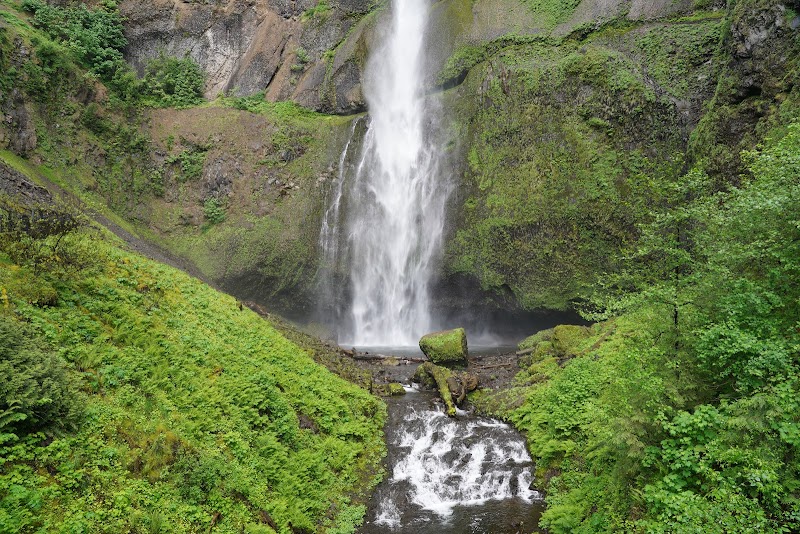
Tackling Trash: Join the Willamette River Cleanup Events in Wilsonville, Oregon
Experience the Willamette River in Wilsonville through action-packed cleanup events that blend community effort with outdoor engagement. These gatherings invite adventurers of all levels to help restore and protect a river that demands respect and care.
Wear Durable, Waterproof Footwear
The riverside paths can be muddy and uneven; sturdy shoes with good grip minimize slip risks and keep feet comfortable during prolonged activity.
Bring Reusable Water Bottles
Hydration is key, especially when working under the sun with physical labor; avoid single-use plastics to align with cleanup goals.
Use Gloves Provided at Events
Protection against sharp or contaminated debris is critical—always wear gloves and handle waste carefully to avoid injury or infection.
Plan for Variable Weather
Wilsonville’s weather can shift; layering clothes provides adaptability for cooler mornings and warmer afternoons, preventing discomfort.
Tackling Trash: Join the Willamette River Cleanup Events in Wilsonville, Oregon
The Willamette River in Wilsonville acts as both a lifeline and a challenge, its currents weaving through the landscape with a gritty determination that dares you to engage. Cleanup events along its banks offer a hands-on adventure where the environment pushes back—not with hostility, but with urgency. This isn’t just a walk along the water’s edge; it’s an active collaboration with a river fiercely itself, asking for guardianship as much as for admiration.
Wilsonville’s stretches of the Willamette encourage participation from casual volunteers and seasoned environmental stewards alike. Trails adjacent to the river vary but commonly span 3-5 miles, mostly flat with mild elevation near the wooded patches and creek inflows. The terrain combines packed earth paths, gravel patches, and occasional soft mud nearer the water, alerting visitors to sturdy, water-resistant footwear. Wild shrubs and towering cottonwoods crowd the trail, their leaves whispering in the breeze while the river relentlessly pushes forward.
Cleanup events are timed to harness seasonal lulls or bursts when human waste tends to gather—early spring after winter rains, and late fall before frost. These efforts bring together community, equipment, and knowledge. Volunteers receive gloves, biobags, and safety tips upfront, and organizers recommend reusable water bottles and appropriate sun protection. Hydration is critical; the river’s breeze can trick your senses on temperature.
Besides restoring the river’s health, these cleanups open doors to quiet wildlife encounters—great blue herons standing sentinel or river otters darting through the shallow waves. Each piece of debris removed extends the habitat's breath. The Willamette here is uncompromising yet responsive, a force of nature coaxed into renewed vibrancy through collective action.
Participating also means briefing yourself on local regulations, learning the environmental impact of different waste types, and understanding how to navigate shoreline slopes safely. The riverbank's subtle hazards, from hidden roots to slick rocks, command respect and careful steps. Communities gather at trailheads with a spirit of stewardship, prepared to tackle the dirty work that helps keep this landscape fiercely alive.
In all, a Willamette River cleanup in Wilsonville is an accessible outdoor endeavor that offers more than physical engagement; it is a practical commitment to the preservation of a local force, a tangible expression of caring for a river that does not yield easily. For visitors and locals, it’s an invitation: come equipped, stay alert, and help shape a cleaner waterway that promises both beauty and challenge in equal measure.
Nearby Trips
All Adventures
Boat Charters
Water Activities
Adventures near Wilsonville, Oregon
Discover the unique and memorable adventures that make Wilsonville, Oregon special.
Frequently Asked Questions
Are the Willamette River cleanup events suitable for families?
Yes. Many events welcome participants of all ages, but parents should supervise younger children closely due to natural hazards and the presence of sharp debris.
What kinds of debris are most commonly collected during cleanups?
Volunteers frequently remove plastic bottles, fishing line, food wrappers, and discarded tires. Organic debris like fallen trees is generally left to preserve habitat structure.
Do I need any special permission or tools to join the cleanup?
No special permit is required; organizers provide gloves, bags, and safety briefings. Bringing personal reusable water bottles and durable footwear is recommended.
Is the terrain difficult to navigate along the cleanup routes?
The routes are mostly flat but may include muddy or uneven surfaces near the riverbank, requiring careful footing and moderate physical ability.
Can I participate in the cleanups during any season?
Cleanups are more common during spring and fall; winter and summer events happen less frequently due to weather extremes and river conditions.
Are there local facilities or resting spots along the cleanup trail?
Wilsonville’s parks near the river often offer picnic areas, restrooms, and parking, making it convenient to take breaks or gather before and after events.
Recommended Gear
Waterproof Hiking Boots
Protects against muddy, wet terrain commonly found near the river, offering support and grip.
Reusable Water Bottle
Ensures hydration during physical activity while minimizing plastic waste around the river.
Sun Protection (Hat and Sunscreen)
Vital for preventing sunburn during long hours under the open sky.
Lightweight, Layered Clothing
Allows adjustment to changing weather conditions typical for cleanup days.
Local Insights
Hidden Gems
- "The west side of the river hosts a small, lesser-known viewpoint near Graham Park offering close river views without the usual crowds."
- "A quiet oxbow bend downriver provides a hidden spot for spotting river otters swimming at dawn."
Wildlife
- "Great blue herons frequent the shallows at sunrise, standing like statues in patient wait."
- "River otters playfully chase one another in the channels, while osprey occasionally soar overhead searching for fish."
History
"Wilsonville's riverbanks have long been a meeting ground for local Native American tribes, including the Kalapuya people, who relied on the Willamette for sustenance and transport."
